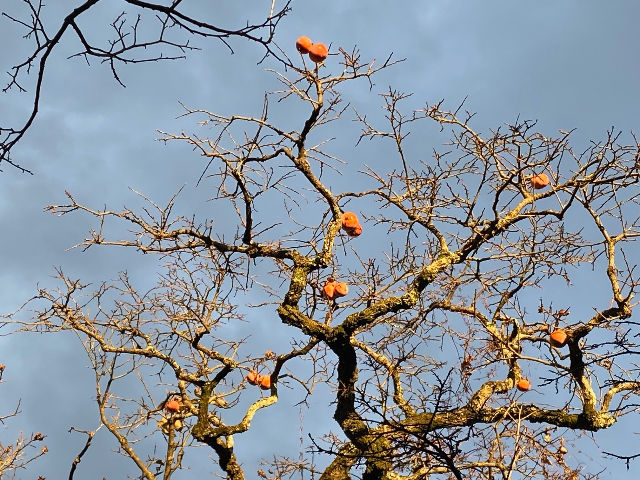THE TYRANNY OF USEFULNESS
- Rebecca Otowa
- May 28, 2020
- 4 min read
Updated: May 28, 2020
A Meditation on Goals
Longfellow wrote in the poem The Village Blacksmith, “Something accomplished,
something done, has earned a night’s repose.” A Japanese proverb says the same thing a
little differently: hatarakazaru mono kuubekarazu (“He who doesn’t work doesn’t deserve to
eat.”)
The idea that man must work is not new, but its insidious transformation into an
unconscious spur to our daily lives, a demand that unremitting work be not only the duty of
man but the linchpin of his biological existence, controlling whether he will eat or sleep,
surely dates back only a few hundred years; I would say, to the beginnings of the Industrial
Revolution, Calvinism, and the Utilitarian system of thought. Before this, human beings had
to work to live, but they had not yet been turned into appendages of their machines. This
had to wait until the development of the modern world, with its economic imperatives ruling
the daily lives of ordinary people. Soon everything, including the labor of man, had a dollar
value attached to it; which meant that slacking, shirking, lollygagging, woolgathering must
be paid for, not just in money, but in shame. The world had changed. As Gerard Manley
Hopkins wrote, “All is seared with trade, bleared, smeared with toil/ The soil is bare now,
nor can foot feel, being shod.”
I used to subscribe to this maxim of Longfellow’s. Each night as I lay in bed, I
would enumerate all the things I had accomplished that day. The implication of the
quotation was that I wouldn’t be able to sleep unless I convinced myself I had “earned” it by
doing enough work. I didn’t really think that through, but recalling the things I’d
accomplished that day certainly made it easier for me to fall asleep; in spite of the fact that,
as any housewife knows, I wouldn’t actually be paid for most of the things I did – and the
same work was waiting for me the next day.
It’s been years since I made a habit of recalling the day’s accomplishments before
falling asleep; and I have never been told, as I’m sure many people have, that since I
hadn’t done enough work, I would not be allowed to eat. These things are, happily, not part
of my daily experience of life, especially now in my retirement years.
Due to the coronavirus, as we endure lockdowns and voluntary self-isolation,
many of us find ourselves with added free time. Even if we work at home, we no longer
have to spend empty hours commuting. How to use that extra time is a conundrum facing
many people. A recent article I read talked about insidious forms of anxiety that surface
when spending a lot of time in one’s home, including an overenthusiasm for starting new
habits, new hobbies, new exercise programs, and so on. In the next paragraph, the author
told how to combat this creeping anxiety – by starting new projects!... although “There must
be balance”. They just couldn’t help themselves. “Making oneself useful” is an axiom of our
times. No matter how old or infirm or senile or downtrodden we are, we must always find
something to do. Don’t waste time! Don’t waste this wonderful adventure called life! Every
moment must be packed with incident and positive reinforcement, or we have not “earned”
whatever comes next.
This idea is so thoroughly ingrained in our culture that it is almost invisible.
Children are taken to task for looking out the window or examining bugs crawling on the
ground; even our dogs have to walk at human pace and rarely get to enjoy a good sniff of
their surroundings before they are whisked off by their owners, who are on the clock
themselves. Go go go! Keep moving! Most people don’t even allow themselves a moment
to breathe in the day and feel its promise before they must begin the daily grind of getting
and spending.
The expression, “A rolling stone gathers no moss” comes to mind here. But this
proverb has two opposite meanings, depending on whether we think of moss as valuable or
not. If it isn’t, then of course it pays to keep moving and not allow the undesirable moss to
accrue. But what if moss is a priceless substance that only grows when we are still and
quiet enough? Shouldn’t we, at least sometimes, allow ourselves to stop rolling?
I am sorry for those for whom lockdown, whatever form it takes in their particular
country, means less money, less food on the table, less security; I am even sorrier for those
that can’t self-isolate because they are providing essential services, endangering
themselves for our sake. But many people, and they are very visible on the news and social
media, are simply complaining because the non-essential things are what they miss most –
getting together with friends, going out to public places, nestling in with a crowd watching a
sports event.
Self-isolation needs to be given its due in encouraging us to think of life in a
different way. For many of us, the horrible imperative to “make yourself useful” has
loosened. We do have time now to notice innumerable little things that go unnoticed in our
ordinary busy daily lives. To offer a very mundane example, I’m much more conscious of
my fingernails growing and at exactly what point I feel I need to cut them. This is quite a
subtle transformation that takes time to happen.
So don’t be so quick to fill up your days with “useful” tasks. Stare out the window
for a while – not to feel closed in, but to see what’s out there. Enjoy a sunset. Find a small
piece of nature to observe, even if it’s only a window box or the tree in a neighborhood
park. Slow down and feel how your body relaxes when it isn’t constantly being exhorted to
think about the next moment rather than being in this very one. Don’t imagine you can
“earn” food or sleep by working – just be grateful when the fulfilment of the body can
happen, no strings attached.
See how beautiful you can make your moss garden.



Good thoughts. I had thought of a podcast I heard recently on one of the great philosophers Pascal had wrote about the human being. In short, men need to be active to avoid boredom and somber thoughts. Yet another person commented on Carl Marx. What he wrote seemed that he was the most Christian among socialists. As for the rolling stone, I suppose some people have it within themselves. How can they be coerced against their own nature.
That was very good for the times we are in.
I have no problem letting the moss grow.
I fact the ad in the newspaper for the house we bought 50 years ago said" A place where rolling stones can gather moss". And I have managed to grow a lot of moss for my gardens.